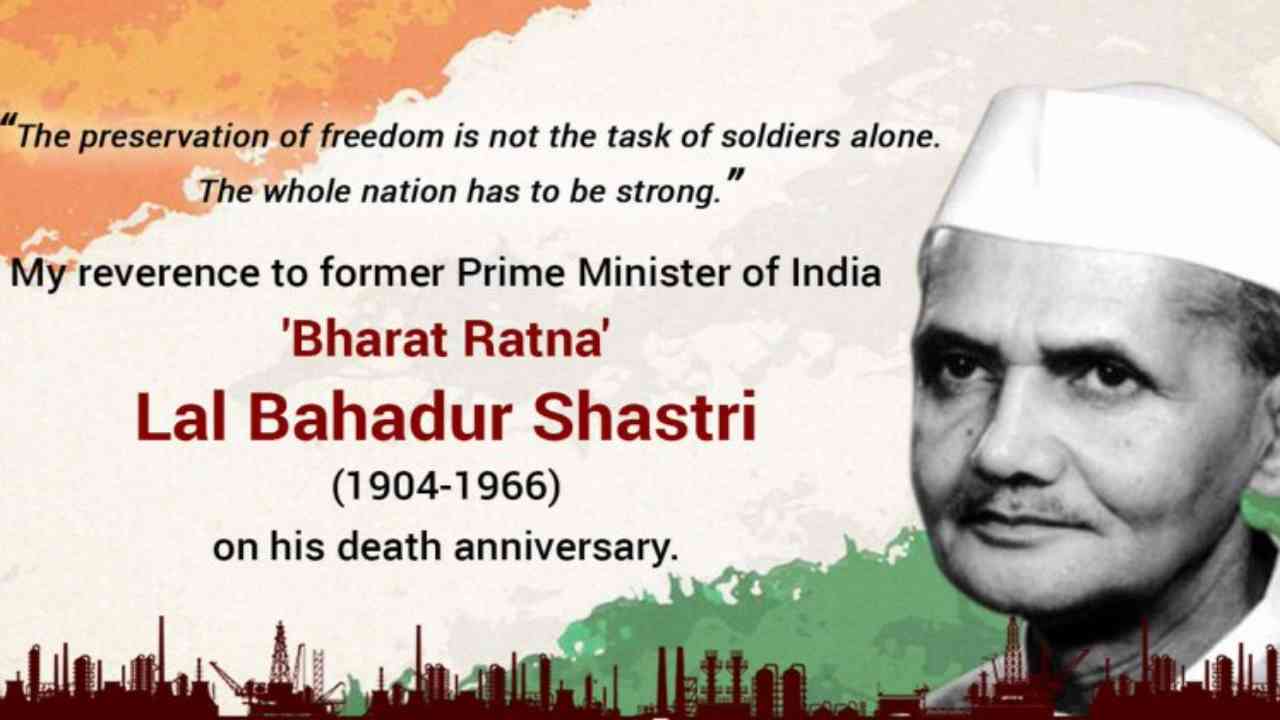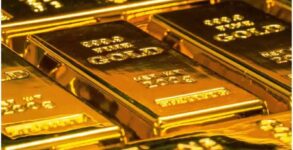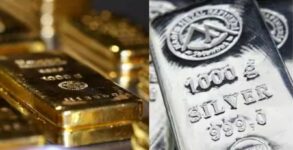Lal Bahadur Shastri was the second Prime Minister of India who occupied the office from 1964 to 1966. However, he died before completing his full term in the office.
PM Shastri died of a heart attack in Uzbekistan’s capital Tashkent on January 11, 1966. Today marks the 56th death anniversary of the late Congress leader.
A devout follower of Mahatma Gandhi, Shastri was born on October 2, 1904 at Mughalsarai in Uttar Pradesh. He grew up in poverty and under British rule. Stories of him walking bare feet for miles to reach school even in sweltering heat have been reported.
Shastri had lost his father when he was just one and a half years old. The tough situations that he had to face as a child made Shastri interested in politics and the national freedom struggle that was led by Mahatma Gandhi at the time.
Inspiring Facts about Lal Bahadur Shastri:
- Shastri joined the non-cooperation movement against the British when he was just 16.
- Lal Bahadur Shastri was immensely influenced by Mahatma Gandhi. “Hard work is equal to prayer,” he had once proclaimed.
- Shastri’s slogan ‘Jai Jawan, Jai Kisan’ during the 1965 war boosted the morale and determination of the soldiers as well as farmers’ scarcity of food and resources.
- He stopped drawing his salary during his tenure as the Prime Minister of India due to the war between India and Pakistan in 1965 and the scarcity caused by it.
- He promoted White Revolution in the country. It was a countrywide campaign to increase milk production. Amul milk co-operative at Anand in Gujarat was supported by him. Also, he created the National Dairy Development Board.
- Lal Bahadur Shastri promoted the Green Revolution in India in 1965 to boost India’s food production. This campaign led to an increase in food grain production, especially in Haryana, Punjab and Uttar Pradesh.
- His tenure as the Prime Minister of India was only for a short span of 19 months.
- Lal Bahadur Shastri died in Tashkent on January 11, 1966.
- He said “True democracy or the swaraj of the masses can never come through untruthful and violent means, for the simple reason that the natural corollary to their use would be to remove all opposition through the suppression or extermination of the antagonist”
Some Quotes By ‘The great Leader’ Lal Bahadur Shastri:
- The preservation of freedom is not the task of soldiers alone. The whole nation has to be strong.
- We believe in peace and peaceful development, not only for ourselves but for people all over the world.
- True democracy or the swaraj of the masses can never come through untruthful and violent means.
- The basic idea of governance, as I see it, is to hold the society together so that it can develop and march towards certain goals.
- The economic issues are most vital for us and it is of the highest importance that we should fight our biggest enemies – Poverty, unemployment.
- Among the major tasks before us, none is of greater importance for our strength and stability than the task of building up the unity and solidarity of our people.
- Success in science and scientific work comes not through the provision of unlimited or big resources but in the wise and careful selection of problems and objectives. Above all, what is required is hard sustained work and dedication.
- That loyalty to the country comes ahead of all other loyalties. And this is an absolute loyalty, since one cannot weigh it in terms of what one receives.
- We have now to fight for peace with the same courage and determination as we fought against aggression.
- India will have to hang her head in shame if even one person is left who is said in any way to be untouchable.
- It is most regrettable that nuclear energy is being harnessed today for making nuclear weapons.
- True democracy or the swaraj of the masses can never come through untruthful and violent means!
Some unknown facts about Lal Bahadur Shastri:
- India’s 2nd Prime Minister Lal Bahadur Shastri shares his birthday with Mahatma Gandhi that is on 2nd October.
- In 1926, he got the title ‘Shastri’ in Kashi Vidyapeeth University as a mark of scholarly success.
- Shastri swam Ganges twice a day to attend school and tied books on the top of his head because he didn’t have enough money that time to take a boat.
- When Lal Bahadur Shastri was the Minister of Uttar Pradesh, he was the first person who had used jets of water to disperse crowds instead of lathi charge.
- He introduced a slogan “Jai Jawan Jai Kisan” and played a pivotal role in shaping India’s future.
- He went to jail because he took part in the Non-Cooperation movement at the time of Freedom Struggle with Gandhi ji but he was let off as he was still a minor of 17 years.
- As a Transport Minister after independence, he introduced the provision of female drivers and conductors in public transportation.
- As a dowry in his wedding he accepted a Khadi cloth and spinning wheel.
- He participated in the Salt March and went to jail for two years.
- When he was Home Minister, he introduced the first committee on Prevention of Corruption.
- He had also integrated the idea of the Green Revolution to boost the demand of India’s food production.
- In the 1920s he joined the freedom movement and served as a prominent leader of the Indian National Congress.
- Not only this, he had also supported the promotion of White Revolution for increasing milk production in the country. He had created the National Dairy Development Board and supported the Amul milk cooperative based at Anand, Gujarat.
- He signed Tashkent Declaration on 10 January, 1966 with the paksitan President, Muhammad Ayub Khan to end the 1965 war.
- He raised his voice against the dowry system and caste system.
- He was a highly disciplined person with high self-esteem and morals. He did not even own a car after becoming a Prime Minister.
















